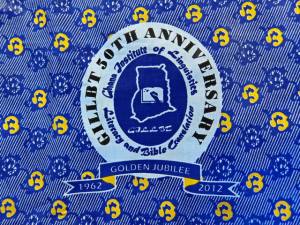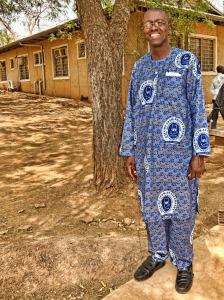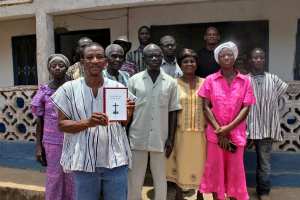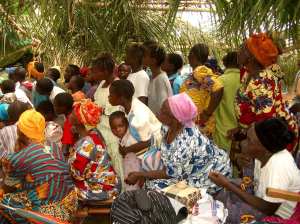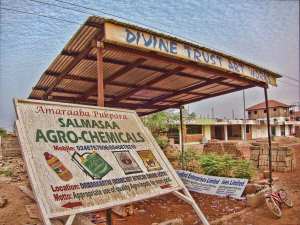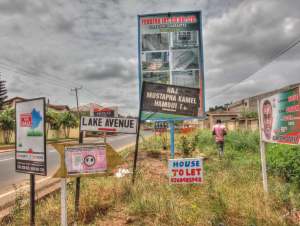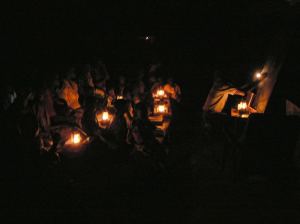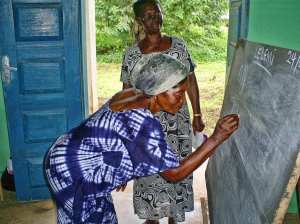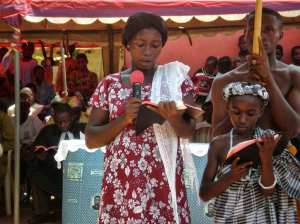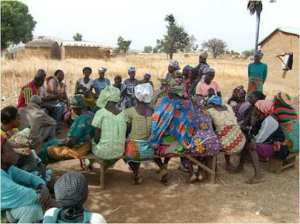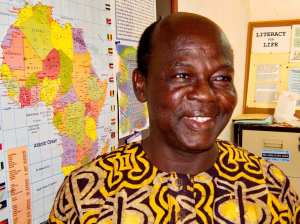The Ghanaian organization Dayle and I work with is celebrating its 50th anniversary. As in many African countries, on such occasions an organization will have special cloth made and sell it. I explain that more in my blog on [get title and reference]. Anyway, here is the 50th anniversary cloth. Of course, along with other staff Dayle and I enthusiastically had outfits made of the cloth.
I was pondering what to have made – a long sleeved shirt, short sleeved, or something else when I saw the chairman of the board in his outfit (see photo). Then a couple days later at church I saw a man in something with different cloth but the same design, but his had cufflinks. I could not remember ever seeing cufflinks on that kind of outfit. But over the next few days I saw several. I had not worn cufflinks for years, so I decided that I would do it. We found a tailor (they are not expensive here), and commissioned my outfit. The tailor himself was wearing an outfit in the same style, also with cufflinks. We found a set of inexpensive cufflinks and I was ready to go.
My next trip was to the town of Kete-Krachi near Lake Volta. We left very early in the morning and did not arrive until after dark. The last 60 miles or so were on a very bad, dirt road. We bumped and jostled our way there at about 25 miles per hour. It seemed interminable. Anything but a serious 4×4 would be beaten to death in no time on that road. We were there for the dedication of the very first Scripture ever published in the Kaakye language – the Gospel of Mark. Of course, I took my new outfit, and all my colleagues would be wearing their anniversary cloth too. The next day I was getting dressed for the event when I discovered that I had made a serious mistake. I had forgotten the cufflinks!
Kete-Krachi is a smaller town with not much of a shopping district. I thought that I would have to wear something else and all of my colleagues would be in their 50th anniversary cloth. No one in the delegation had a pair of cufflinks with them, nor did any of the Kaakye translators, with whom we had breakfast. On a lark, we drove down the main road glancing at the shops. There weren’t many and it would not take long. My colleague, Naana Nkrumah, said “Stop! Stop! That one!” I got out and walked over to the little shop to see a glass and wood display box in which were placed about 20 pairs of cufflinks! Not only would I get cufflinks, I would have to spend a little time choosing among various designs. I bought a pair for about $3, was rescued from my error, and was able to celebrate the event in the proper attire.
Cufflinks in Kete-Krachi — who would have guessed.

